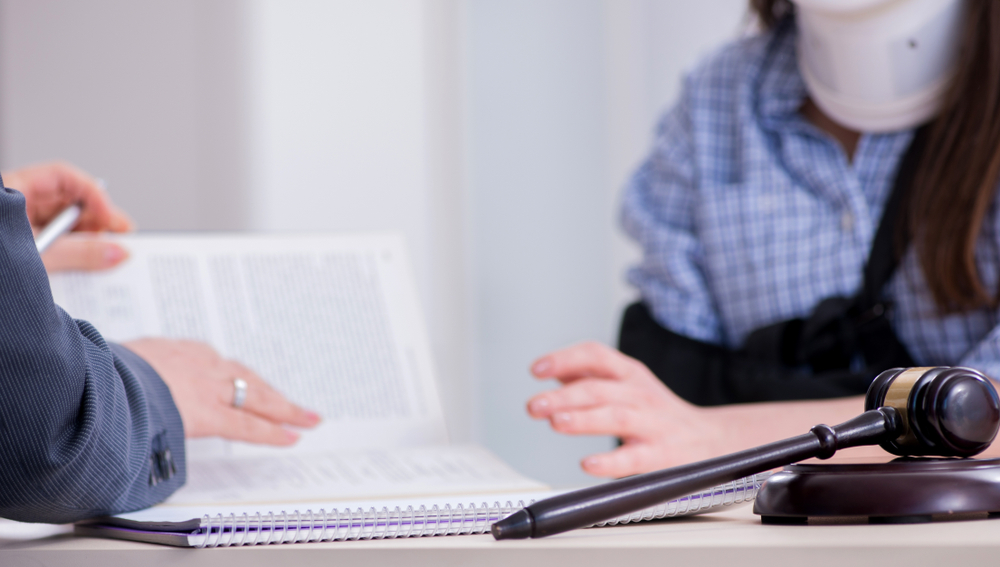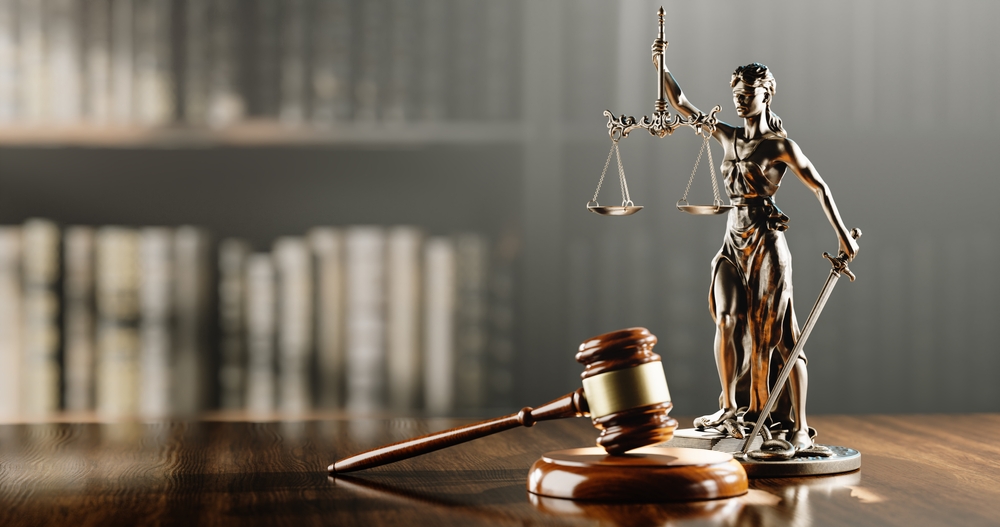The Role of Expert Witnesses in Proving Your Injury Claim

Written by Bradley Smith

Expert witnesses can be crucial in proving an injury claim by providing professional opinions that clarify the facts of a case. When medical records, accident reports, or physical evidence are not enough, courts often rely on experts in fields like medicine, engineering, or accident reconstruction to explain complex issues in clear terms.
Proving your injury claim with witness testimonies can help validate the extent of injuries, determine causation, and address future care needs. Judges and juries often give significant weight to expert analysis, which can directly impact the outcome of a claim. Choosing the right expert witness and preparing their testimony effectively are important steps for those pursuing compensation after an injury.
The Importance Of Expert Accounts In Injury Claims
Expert witnesses play a significant role in validating facts and providing clarity in personal injury lawsuits. Their testimonies often help bridge the gap between complex evidence and clear conclusions regarding injury claims.
Definition And Role Of Expert Witnesses
An expert witness is an individual with specialized training, experience, or education who offers opinions beyond what a standard witness can provide. Unlike regular witnesses who simply recount what they saw, expert witnesses interpret technical information to support or dispute key points in an injury claim.
Their primary function is to explain medical diagnoses, the extent of injuries, accident reconstruction, or long-term impact. The court often relies on expert opinions to clarify complicated issues such as causation or the necessity of treatment. This makes their contributions valuable in cases where the facts alone may not fully establish liability or damages.
Expert witnesses also prepare detailed reports and may be cross-examined in court. Their findings enable judges and juries to better understand evidence that may be outside general knowledge.
Types Of Expert Witnesses In Personal Injury Cases
Expert witnesses in personal injury claims generally include several specific types, including:
- Medical experts: Physicians, surgeons, and specialists assess the nature, cause, and prognosis of injuries.
- Accident reconstructionists: These experts analyze the physical evidence at an accident scene to determine how it happened.
- Economic experts: Accountants or economists estimate past and future financial losses, such as lost wages or earning capacity.
- Vocational experts: They assess a person’s ability to work post-injury.
Each type of witness focuses on distinct aspects of a case. For example, medical experts can help establish that an accident directly caused the injuries, while economic experts quantify the financial impact. Having the right experts can make the evidence more persuasive and credible.
Utilizing Witness Accounts for Successful Injury Claims
Expert testimony can influence the outcome of an injury claim by reinforcing or challenging the validity of injury allegations. Their testimony often addresses the “how” and “why” behind the injury, filling in gaps that witness accounts cannot explain.
Juries and judges rely on expert explanations to decide if the plaintiff’s version is credible. A strong expert opinion can counter disputed facts or clarify doubts raised by the opposing party. In many cases, settlements and verdicts have hinged on how convincing and thorough the expert’s analysis appears.
Effective expert testimony can also encourage early settlements. When opposing parties recognize the strength of expert-supported evidence, they may choose to resolve the claim without proceeding to trial. This practical impact highlights why selecting reputable and qualified expert witnesses is crucial when proving an injury claim with witness testimonies.
Integrating Expert Witnesses Into Your Injury Claim Strategy
Expert witnesses provide critical analysis and evidence, clarifying technical issues and strengthening the credibility of an injury claim. Their involvement often helps resolve disputed facts and interpret complex data for judges and juries.
Situations Where Expert Testimony Is Essential
Expert testimony becomes vital when an injury claim involves specialized knowledge outside common experience. For example, medical professionals are needed to explain injury severity, prognosis, and treatment costs. Accident reconstructionists can clarify how an incident happened, providing diagrams, speed calculations, and scientific assessments.
Financial analysts may be called to quantify lost earnings, future care expenses, or diminished earning capacity. Claims involving disputed liability, long-term disabilities, or complex technical equipment typically require such expertise. In catastrophic injury or medical malpractice cases, expert input is nearly always indispensable.
Selecting The Right Professional Experts
Identifying the correct type of expert is foundational. Medical doctors, orthopedic surgeons, and rehabilitation specialists are often called to testify about physical harm. Psychologists or psychiatrists might be needed if emotional trauma is claimed.
Accident reconstructionists, materials engineers, and biomechanical engineers are frequently engaged in motor vehicle or workplace accident cases. Financial analysts and vocational experts address economic losses. Credentials, experience testifying in court, and impartiality are—the key criteria when selecting.
Selecting a local professional familiar with relevant state standards or practice communities may improve witness credibility.
Step-By-Step Process Of Utilizing Expert Testimonies
- Early Evaluation: Attorneys assess the case to determine if expert input is needed and identify the appropriate field.
- Engagement: The expert is retained, receives all relevant records, and provides a preliminary review.
- Discovery: Experts prepare written reports, opinions, and possible demonstrative evidence, often participating in depositions.
During the trial, experts present findings in clear language, supplemented by visuals, graphs, or models. They may address opposing expert opinions through rebuttal testimony. The process concludes with the expert supporting the claim by explaining their opinions and responding to cross-examination, which can often be decisive for the claim’s outcome.

Maximizing The Benefits Of Expert Witness Support
Expert witness testimony can be a deciding factor in the outcome of an injury claim. Strong legal guidance and clear, credible evidence work hand-in-hand to support your position and address challenges as they arise.
Working With Experienced Legal Counsel
Effective collaboration between legal counsel and expert witnesses helps ensure that technical issues are explained to the court in a clear, persuasive manner. Smith & Weidinger PLLC has extensive experience in coordinating witness testimony for injury claims and focuses on preparing both the expert and the client for all stages of litigation.
Our attorneys know how to identify the right experts, brief them on the specifics of each case, and anticipate areas of scrutiny. This preparation reduces the risk of miscommunication or surprises during cross-examination.
By managing the expert relationship professionally, Smith & Weidinger PLLC helps clients move through the complexities of litigation with confidence and strategic direction.
Benefits Of Robust Witness Testimony
Compelling witness support strengthens both the factual and technical aspects of an injury claim. When an expert can explain medical diagnoses, accident reconstruction, or standards of care in clear terms, the evidence becomes meaningful and credible.
Smith & Weidinger PLLC leverages robust witness support to clarify disputed facts and help establish causation or damages.
Key benefits include:
- Clarifying complex details for judges and juries
- Increasing the reliability of injury documentation
- Answering technical questions from opposing counsel
- Supporting arguments with data-driven evidence
Our comprehensive approach gives clients a measurable advantage when negotiating settlements or presenting their case in court.
Addressing Common Challenges In Expert Testimony
Several challenges can arise with expert testimony, such as potential bias, lack of clarity, or scrutiny from the opposing side. It is essential to address these issues directly to protect the credibility of the witness.
Smith & Weidinger PLLC mitigates risks by thoroughly vetting experts and preparing them for both direct and cross-examination. Our team works to anticipate opposing arguments and guides the expert in presenting complex topics in an accessible manner.
Through careful planning and attention to detail, the firm reduces the impact of common pitfalls, helping ensure that expert opinions remain relevant and reliable throughout the injury claim process.
Note: The information provided in this blog post has been compiled from publicly available and secondary sources. While we strive for accuracy, some details may become outdated or contain inadvertent errors. If you believe any information is incorrect or requires updating, please contact Smith & Weidinger so that we may review and make the appropriate corrections.
Disclaimer: This blog post is for informational purposes only and is not intended as a solicitation for business. The photo used is not from the scene of the incident described. Viewing this content does not create an attorney-client relationship with Smith & Weidinger. If you have been injured in an accident, please seek immediate medical attention and then consult with a qualified attorney to discuss your legal rights and options.










